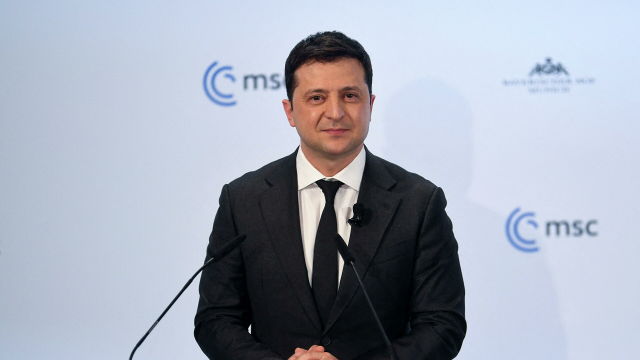MOSCOW, February 20/ Radio Sputnik. The words of the President of Ukraine Vladimir Zelensky about the possible withdrawal of Ukraine from the Budapest Memorandum can be considered a "cunning move," according to military observer, retired Colonel Viktor Baranets.
The day before, Zelensky announced his intention to initiate consultations within the framework of the Budapest Memorandum. According to the Ukrainian leader, if the summit of the countries participating in the treaty does not take place or does not provide Kiev with security guarantees, the authorities will recognize the document invalid.
In his opinion, Zelensky's "speculative statement" about the possible rejection of a nuclear-free status "has more of a populist character than a sober and realistic one."
On December 5, 1994, Ukraine signed the Budapest Memorandum, according to which it pledged to eliminate the nuclear arsenal left over from the Soviet Union in exchange for security guarantees from Russia, the United States and Great Britain.
Kiev also joined the Treaty on the Non-Proliferation of Nuclear Weapons and, as part of fulfilling its obligations under the document, disposed of more than 1.2 thousand thermonuclear warheads that were exported to the Russian Federation.
From 1996 to 2002, the launchers and elements of the missile infrastructure were gradually dismantled.
Soviet nuclear physicist Alexander Borovoy shared his opinion with Sputnik radio about the hypothetical prospects of Ukraine to create its own nuclear weapons:
Earlier, Sputnik radio reported that more than 40 thousand people were evacuated to Russia from Donbass.



